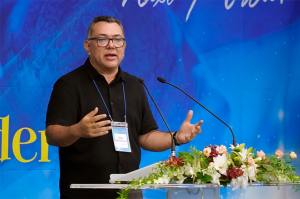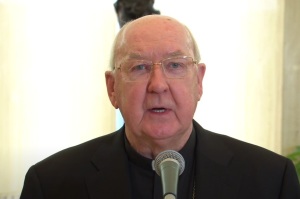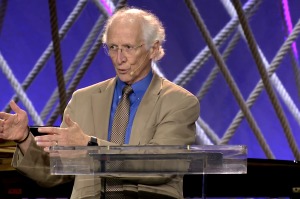Secularists Shun Obama's Faith and Governance Approach; Approve of Romney's
As the race for the White House heats up, various groups are hoping to play a part in the shaping of American politics, including the Secular Coalition for America, which has published a scorecard that rates candidates on their stances concerning nontheistic issues.
The group's website features a scorecard of how potential presidential candidates for this year's general election, including all past GOP nominees, fare on secular issues. While President Barack Obama has the most positive scores in various categories, Mitt Romney, the likely GOP candidate, scored an "A" in the "God, Faith and Governance" category; President Obama was only given a "C."
The category questions:"Has the candidate ever claimed that God or any other supernatural entity spoke to or sent him or her messages directly? Does the candidate profess that his or her personal religious beliefs will guide his or her actions while in office? Does candidate believe the end times are approaching?"
The "A" score means that the candidate is "consistently positive" on the issue, while "C" means that he or she has "mixed, with positive and negative responses." The group provides quotes in which President Obama admits to praying often for guidance in his decisions, and notes that Mitt Romney says he separates his personal beliefs from political decisions." Former evangelical favorites, such as Rick Santorum, Rick Perry and Michele Bachmann, all received "Fs" in that category.
The Secular Coalition for America represents 11 nontheistic groups, including the American Atheists and the American Humanist Association, and its official mission statement rejects what it considers supernatural beliefs and promotes "reason and science as the most reliable methods for understanding the universe and improving the human condition."
Based in Washington, D.C., the group begins an initiative in June when it will install directors in 18 different states, ranging from Hawaii to Pennsylvania, and hold meetings with local politicians, lobbying for secular causes and concerns, My SanAntonio reported.
"The majority of erosion to church-state separation is at the local level," explained Serah Blain, the SCA's Arizona director, who was appointed in January. "It's in city councils and school boards and statehouses. And that's where these things really affect people's lives, with laws on bullying and abortion and access to health care. And they are passing without much opposition because it isn't seen as glamorous to lobby locally."
Evidence of nontheists gaining political power includes the group's appointment of Edwina Rogers as its executive director. Rogers is a veteran Republican lobbyist with ties to Capitol Hill. The organization believes it can grow to become a real political force and start gaining more support.
"For too long, the 50 million secular Americans have been ignored, under-appreciated and undervalued -- that's what drew me to the Secular Coalition for America," Rogers declared in the group's press release.
Atheists must "show elected officials that we are a political movement that needs to be recognized. That kind of recognition has been lacking because it is not politically savvy. So we need to show them that we are there and that we count," said Amanda Knief, Administrative Director at American Atheists.
This year, one of the largest atheist gatherings ever held took place in Washington, D.C. on March 24. The Reason Rally, billed as a celebration of reason and a "coming out" event for atheists, attracted thousands of people who showed up to hear speeches from prominent atheist speakers, such as British author Richard Dawkins.
"There are too many people in this country who have been cowed into fear of coming out as atheists or secularists or agnostics," Dawkins noted at the event. "We are far more numerous than anybody realizes."





























